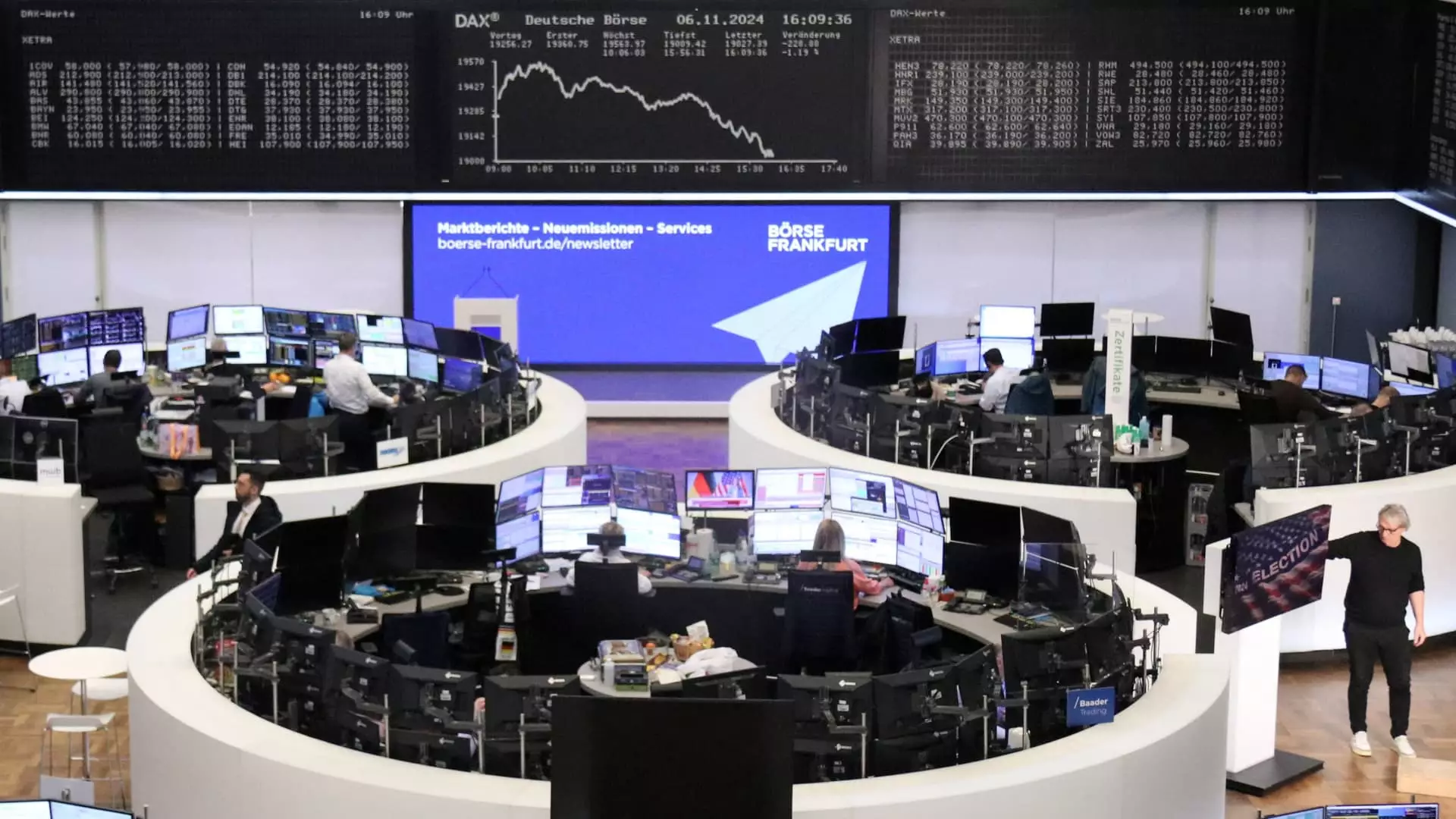On any given day, stock markets can resemble a rollercoaster, and Wednesday was no exception for European equities. A glimmer of optimism surrounded the rally that followed declines the day before, as investors speculated about U.S. President Donald Trump’s potential easing of a staggering 25% tariffs on Canada and Mexico. This mood swing reveals a reality of economic dependency where global trade policies can unearth both highs and lows within hours. The Stoxx 600 index, a broad measure of European stocks, climbed by 1.05% shortly after the opening bell, reflecting a collective sigh of relief—or perhaps denial—that the world’s economy wouldn’t plummet just yet.
The emotional pendulum swings widely, driven by sentiments that global trade will remain intact despite the looming threats of tariffs. Investors, caught in the web of international relations, seem to embrace a sense of cautious optimism, not necessarily grounded in the fundamentals but in the hope that cooler heads will prevail. Still, let’s not forget the serious implications these decisions have on ordinary citizens, as they risk becoming mere collateral damage amidst high-stakes negotiations.
The Fragile State of Consumer Confidence
Despite the morning’s optimism, underlying issues remain troubling, particularly in sectors like utilities and food and beverage, which found themselves in the red. This division in market performance paints a telling picture of consumer confidence—or the lack thereof. Global fluctuations can produce fleeting gains, but what remains troubling is how these tariffs can fuel inflation, creating a ripple effect that impacts daily living costs for the average citizen.
Trade tariffs, ostensibly aimed at protecting domestic industries, often fall short of intended outcomes and instead exacerbate inflationary pressures affecting consumers directly. This reflects a broader dynamic of how trade wars can diminish economic stability for ordinary people while seemingly benefiting corporate entities that may benefit from protectionist measures. The predicament reveals that it may take a more pragmatic approach to achieve sustainable economic growth, one that safeguards not just corporate interests but the welfare of populations.
Germany’s Debt Brake Dilemma
Looking inward, Germany’s anticipated reforms regarding its debt brake system reveal a government willing to navigate contentious waters to stimulate its economy. Faced with criticism over stagnant growth, the conservative alliance and Social Democratic Party are pushing for alterations that may allow Germany to exceed its long-held fiscal discipline. Friedrich Merz, a leading candidate for chancellor, indicates a readiness to borrow significantly to revamp the nation’s infrastructure—an ambitious move that could invigorate economic growth but also sow distrust.
Is it truly wise for Germany to flirt with budget deficits exceeding 3% of GDP while international equity markets teeter? There is a concern that while reforming the debt brake may provide immediate economic relief, it might lead to long-term fiscal irresponsibility. The pressing question is whether Germany will prioritize short-term gains over sustainable fiscal policy, especially in the context of ongoing global uncertainty. The plight of inflation and potential upward pressure on bond yields could provide necessary caution, but this is often drowned out by cries for economic expansion.
In Pursuit of Stability: Lessons to Learn
With markets already reacting to heightened geopolitical tensions, the focus should shift to a proactive rather than reactive economic stance. The authorities must recognize that economic policies should not merely be reactionary—looking to regain confidence after a marked downturn—but also be strategic in building resilience against future shocks.
As the narrative unfolds, the world watches not just how these economic shifts impact stock indices but how they envelop individuals, communities, and nations into a broader tapestry of economic interdependence. The quest for robust solutions should run parallel with a commitment to social responsibility—not just fostering corporate profits but also prioritizing the livelihoods of those often reduced to casualties of political maneuvering. It’s time to unify voices advocating for a balanced approach, one that fosters economic growth while supporting consumers and communities alike amidst the storm of uncertainty.


Leave a Reply